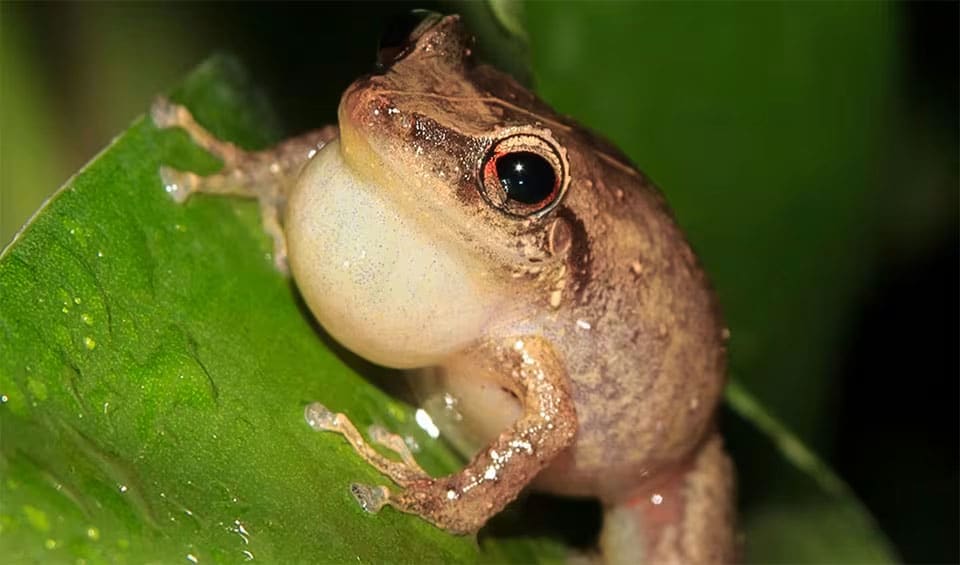Don’t let their size fool you, common coquis are bursting with personality. These nocturnal tree frogs typically measure only 1 to 2 inches long, with the females being slightly larger than the males. Their coloration is a blend of browns, grays, and sometimes even whites, with a variety of patterns ranging from no markings to stripes, spots, or even a faint “M” between their shoulders. Their eyes can be gold or brown, adding to their unique charm. Unlike some frogs, common coquís lack webbing between their toes, but their large toes help them with their climbing skills.
The most recognizable feature of the common coquí is its unforgettable call. This two-part song, where “co” serves to repel other males and establish territory while the “quí” attracts females, has earned them their name. Interestingly, the auditory systems of male and female coquís respond preferentially to different notes of the call, showcasing a fascinating example of sex difference in a sensory system.
Common coquís are perfectly adapted for life in the trees. They spend their days tucked away in safe spots like under rocks or leaves, emerging at night to hunt for prey. Their sticky toes help them navigate the leaves and branches with ease. Their diet consists mainly of small insects, spiders, and even smaller frogs, which they snatch up with
Unfortunately, the common coquí’s success in Puerto Rico has led to problems elsewhere. These tiny frogs have been accidentally introduced to Hawaii and other Pacific islands, where they can become invasive. Their high population densities and loud calls can disrupt ecosystems and become a nuisance to residents.
Distribution
 Costa Rica
Costa Rica Dominican Republic
Dominican Republic Puerto Rico
Puerto Rico US Virgin Islands
US Virgin Islands United States
United StatesAnything we've missed?
Help us improve this page by suggesting edits. Glory never dies!
Suggest an editGet to know me
Terrestrial / Aquatic
Altricial / Precocial
Polygamous / Monogamous
Dimorphic (size) / Monomorphic
Active: Diurnal / Nocturnal
Social behavior: Solitary / Pack / Herd
Diet: Carnivore / Herbivore / Omnivore / Piscivorous / Insectivore
Migratory: Yes / No
Domesticated: Yes / No
Dangerous: Yes / No




